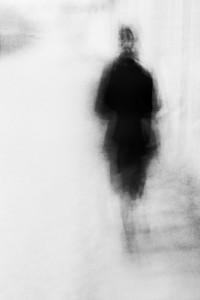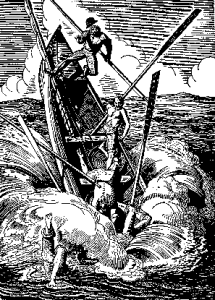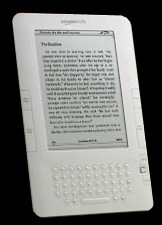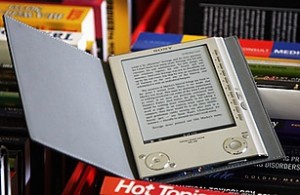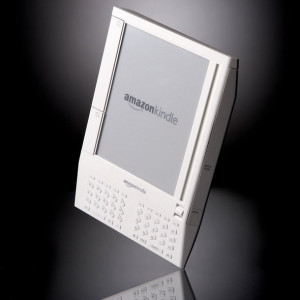I’ve been giddy with excitement since Friday when I took possession of my new iPad and, although I haven’t bought all the apps or go totally crazy in the iBooks store, I have to admit I’m hooked. I bought it mainly because I wanted an e-reader and since the iPad offers both iBooks as well as the Kindle, it was a no-brainer for me. I also get to feed my NYT crossword addiction! Since my family and I are about to embark on a two month camping/national park odyssey the iPad is also going to be a much lighter (and let’s face it much cooler) option than lugging round a bag full of books, DVDs, DVD player, laptop etc.. The only tricky thing will be working out how to blog with it on the road.
Now I’m an old-fashioned Luddite when it comes to most technology but I have to say, having spent just over two days with my iPad, I really do think that it marks the start of some great changes to come. We’ve blogged long and hard about the whole e-book phenomenon but I know once my parents are like ‘this is cool’ the world must be changing! (for the record my parents are antiquarian book collectors so the mere fact that they are even remotely impressed says something). So here’s my initial verdict on the e-book capabilities of the iPad:
- As my husband had already bought and loaded my own books on the iBookshelf it was very cool to see my books in e-book format 🙂
- I like the fact that you just turn the page in an intuitive way that mimics the feel of reading a paper book. The colors and picture resolution are great (Winne the Pooh was already loaded) and I can see me reading an e-book to my children without feeling disconnected from the physical experience – so far it feels just as cozy reading to them from the iPad (despite the fact they fight over who gets to touch the screen and turn the page).
- I liked the iBooks store but I confess I wasn’t overwhelmed by it. Searching is a bit laborious and there were a lot of titles I couldn’t find (including some of my fellow TMZers) so I think this will take some time to become optimal.
- It was, however, way, way,way too easy to buy a book. I think I downloaded 10 free classic books and 5 paid books it about 10 minutes (seriously they may need to have an ‘e-books anonymous’ society for me!) But this is great news for authors. I can well imagine publishers vying for advertising/space on the ‘featured titles page’ once the iBook store becomes a bigger player in the market.
- Which leads me to what I think will be a great ‘game changer’ – once Amazon and iBooks start eroding the power of big chains like Barnes & Noble I can imagine publishers will be able to diversify and niche market some of their lists better than they can presently (at the moment my understanding is they have very much a ‘will B&N buy this title’ mentality when it comes to acquisitions).
- I was extremely excited to be able to download many of the historical books I use for research so I can read them in a portable format. I used to have to troll through them on my laptop which was very cumbersome.
- Many publishers already have their own apps so readers can go directly to them (My publisher, Penguin USA, for instance, already has one) which is great (though not much different to what’s already out there on the web) but I can see scope for these apps to be expanded which can only help authors.
- Already there are some amazingly cool apps that have created terrific visual/interactive content for books (Alice for iPad for example) and I look forward to many more that attract new readers (never a bad thing!)
So all in all, I give the iPad a big thumbs up. It serves my purposes well and has me finally entering the e-book age (which is a miracle in and of itself).
For any of you who have iPads what’s your verdict? Are there any new apps/developments that you think could really improve the e-reading experience? I can’t wait for historical books to have links embedded in them so I can really get the most out of my research (video links, costume designs etc. would be way cool). I was also thinking that our own JRM could produce a great ‘chicken army’ app…So what about you all, any great book app ideas???


